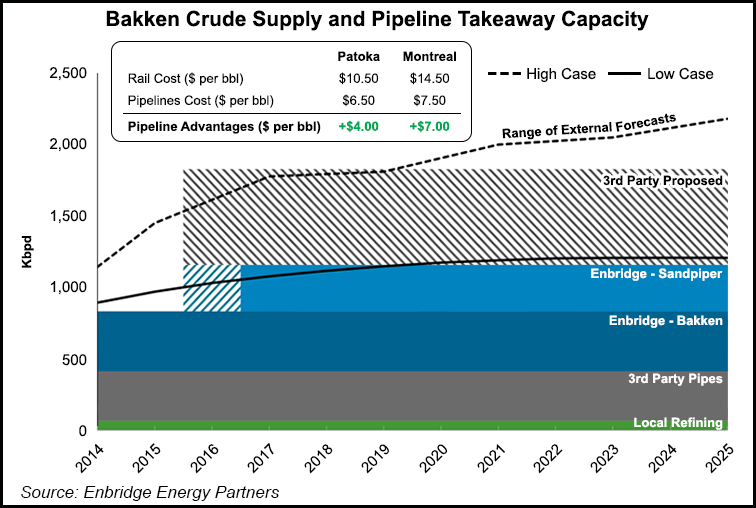Bakken Shale | E&P | NGI All News Access
Separating Liquids From Bakken Crude Gets More Attention
A coalition pushing for separating all liquids from Bakken crude oil supplies is taking its case to lawmakers, firefighters and emergency managers in North Dakota, pushing the process known as “stabilization,” or stripping of natural gas liquids (NGL).

The uptick in activity by the Coalition for Bakken Crude Oil Stabilization comes as the North Dakota Industrial Commission prepares in the next few weeks to finalize new rules for the state’s crude content (see Shale Daily, Nov. 14).
A spokesperson for the Department of Mineral Resources said the proposed rules, on which public comment was closed this week, include standards for how well site equipment should operate to properly remove gas from the oil. Federal authorities — the Pipeline Hazardous Materials and Safety Administration and the Federal Railroad Administration — will determine if crude-by-rail shipments will require all liquids to be stripped out of Bakken supplies, she said.
Existing North Dakota safety standards call for all flowing oil wells to produce through “an approved oil/gas separator or emulsion treater of ample capacity and in good working order.”
Since several rail mishaps last year involving Bakken crude shipments, including fires and explosions, the high liquids content of Bakken supplies and the overall content of the oil has received heightened scrutiny from regulators and the industry, such as the North Dakota Petroleum Council (NDPC) (see Shale Daily, June 5).
NGLs are routinely stripped from crude in other oil production areas, such as the Eagle Ford in Texas, but in those cases the infrastructure of stabilizers has been in place to do the job where the production sits relatively close to robust NGL markets. North Dakota has no in-state petrochemical market (see Shale Daily, May 27) and is 1,500 miles away from the Gulf.
In its latest communication, the stabilization coalition is alleging that Bakken producers don’t want to remove the NGLs because of the additional cost.
© 2024 Natural Gas Intelligence. All rights reserved.
ISSN © 2577-9877 | ISSN © 2158-8023 |
